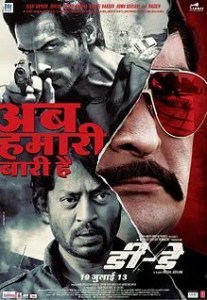Watch Ram Setu on Amazon Prime
Ram Setu is interesting because it explains many of the limitations placed on the Hindi film industry by India’s current political environment, then proceeds to exemplify all of the problems it identifies. It’s a thought-provoking movie, albeit for the wrong reasons.
The story is set in 2007, allowing the filmmakers to plausibly deny that the movie is about present day India. Atheist archeologist Aryan (Akshay Kumar) discovers important artifacts in Afghanistan that reinforce the country’s connections to India via the Silk Road. Aryan notes that the whole region shares a cultural history, regardless which religion predominates, past or present.
It’s significant that writer-director Abhishek Sharma has his main character voice the merit of preserving history based on cultural import — which often aligns closely to religious import, to be fair — because Sharma spends the rest of the movie ignoring that nuanced sentiment in favor of pandering to religious zealots.
Aryan is hired by the Indian government to write a paper declaring that Ram Setu — a now-submerged land bridge connecting India to Sri Lanka — is a naturally occurring structure. This crucial step will allow shipping magnate Indrakant (Nassar) to demolish part of the bridge for speedier ocean transit. There are environmental concerns about the project, too, but they are nothing compared to the vociferous opposition by Hindu groups who believe that Rama himself built the bridge.
Aryan’s wife Gayatri (Nushrratt Baruccha) is a believer and warns Aryan against getting involved. He does anyway. Due to the ferocity of the protests, Aryan is scapegoated and suspended, and the couple’s son is bullied at school. Aryan figures that the only way to clear his name is to accept Indrakant’s offer to investigate Ram Setu personally and prove that it is not a man-made structure.
Indrakant and his villainous lackey Bali (Pravesh Rana) are condemned for demanding Aryan and the other researchers — including environmental scientist Dr. Rebello (Jacqueline Fernandez) and geologist Dr. Gabrielle (Jeniffer Piccinato) — cherry-pick their findings to support the bridge’s destruction rather than follow the evidence where it leads. Yet Ram Setu does the exact same thing. It lays out plenty of plausible counter-arguments, but it ends up with Aryan being converted and publicly declaring that God is real.
Sharma writes a couple of courtroom scenes in which the lawyer for the state argues that that even if Ram Setu was man-made, Aryan hasn’t proven that Rama was the one who built it. And further, why is the bridge’s significance to Hindus more important than its significance to Christians and Muslims? All these claims could fall under the cultural value statement that Aryan himself made earlier in the film, especially if they are considered collectively. But Aryan insists that Rama is the architect and that Hinduism’s claims on the bridge are the only ones that matter.
Based on the positions Sharma writes for the opposition, he knows what a movie that trusts in the intelligence of its audience would sound like. Unfortunately, he took to heart one of the lessons Aryan learns: don’t anger the mob. The end result is a movie that feels pandering, and therefore forgettable.
The adventure aspects of the film are not bad in concept, but there wasn’t the budget to execute them properly. There’s lots of obvious green-screen usage, with backgrounds and environments that feel fake. The practical sets that are used are pretty good.
Performances across the board are uneven, with Kumar being needlessly shouty at times. His emoting in the film’s lone dance number is unappetizing. Telugu star Satyadev Kancharana is a welcome addition to the story as helpful Sri Lankan tour guide AP.
Links
[Disclaimer: my Amazon links include an affiliate tag, and I may earn a commission on purchases made via those links. Thanks for helping to support this website!]



